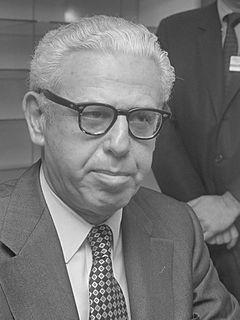A Quote by Alexis de Tocqueville
The most perilous moment for a bad government is when it seeks to mend its ways. Only consummate statecraft can enable a king to save his throne when, after a long spell of oppression, he sets out to improve the lot of his subjects.
Related Quotes
He loves me, and I reward his love by forcing on him something he hates. In the evening, after we dance, he rarely returns to the throne; he dances with others or moves from place to place through the room. The court thinks he is trying to be gracious, sharing his attention. Only I see that he moves always to the empty spot and the court always moves after him. He is like a dog trying to escape his own tail. He indulged himself in one brief moment of privacy, and almost died of it. Relius, he hates being king.
There are no term limits on His reign. He has always been King and He always will be King. There is no death that threatens the perpetuity of His sovereign authority. There is no usurping of power by a lesser rival to His throne. There are no coups, no revolutions (at least, none that succeed). There is no threat of impeachment. He is a King who rules eternally.
It had ceased raining in the night and he walked out on the road and called for the dog. He called and called. Standing in that inexplicable darkness. Where there was no sound anywhere save only the wind. After a while he sat in the road. He took off his hat and placed it on the tarmac before him and he bowed his head and held his face in his hands and wept. He sat there for a long time and after a while the east did gray and after a while the right and godmade sun did rise, once again, for all and without distinction.
I am reminded of the old court jester who was supposed to entertain his king with interesting stories and antics. He looked at the king who was lolling on his throne, a drunken, filthy rascal, doffed his cap and bells, and said with a mock gesture of obeisance, “O king, be loyal to the royal within you.” And so I say to you young people today, remember your heritage, and be loyal to that royal lineage that you have as members of the church and kingdom of God on the earth.
I have discovered in my long life that there are many words and phrases which have more power than any spell of magick. The most well-known of these is, of course, I love you. But by far the most deadly is, if only. For these two words can strip a man's strength, his courage and his confidence. They become the father of regret and anguish and pain.
If an earthly king was to issue out a royal proclamation, on performing or not performing the conditions therein contained, the life or death of his subjects entirely depended, how solicitous would they be to hear what those conditions were? And shall not we pay the same respect to the King of kings and Lord of lords and lend an attentive ear to his ministers, when they are declaring, in his name, how our pardon, peace, and happiness may be secured?
He[Napoleon] had destroyed only one thing: the Jacobin Revolution, the dream of equality, liberty and fraternity, and of the people rising in its majesty to shake off oppression. It was a more powerful myth than his, for after his fall it was this, and not his memory, which inspired the revolutions of the nineteenth century, even in his own country.








































